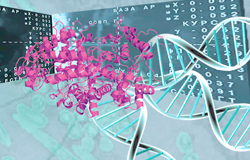About our Department
Our research
The main interest of our research is to determine determinants of heart failure and heart rhythm problems in children with heart disease. We aim to improve the diagnostics and treatment of heart failure and arrhythmias to provide optimal quality of life in young patients with heart disease.
Heart failure
In children with structural congenital heart disease and cardiomyopathies we use advanced imaging tools (strain and 3D echo, (stress-) MRI), exercise testing and blood biomarkers to find associations between early changes in heart function and medium to long-term outcomes. Serial follow-up of cohorts in a multi-center setting is an important part of this set-up. Studies include the right ventricle and its interaction with lung pathology (BPD), single ventricular circulation and dilated cardiomyopathy. We also study means to improve these children’s quality of life.
Arrhythmias
Regarding children with abnormal heart rhythm, we conduct cohort studies based on available information in databases as well as prospective multi-center studies to find ways to improve the early detection of the risk for sudden death and to test the added value of new strategies for drug treatment of common arrhythmias. In addition, our projects focus on possibilities to improve the quality of life and reduce impairments of growing children who are carriers of cardiac conduction disease with known increased risk of (life-threatening) ventricular arrhythmia.
Translational research
Observations in patients are tested in an experimental setting and vice-versa. This includes induced stem cell based as well as larger models, covering cellular processes and intact organ pathophysiology.
Organization
The pediatric cardiology research is part of multidisciplinary research collaborations within Erasmus MC (Pediatric Chest Center, Center for Congenital Heart Disease, Generation R, Cell Biology), the Academic Center for Congenital Heart Disease (with Radboud umc Nijmegen), Medical Delta (TU Delft (Cardiolab), Leiden umc), and national and international consortia (KinCor (Dutch national patient registry), Cobra3, BAV, Lena, etc.)
Principal Investigators
- Willem A Helbing, MD, PhD, professor of pediatric cardiology, research lead.
- Beatrijs Bartelds, MD, PhD, associate professor in pediatric cardiology, lead translational research, BPD.
- Michiel Dalinghaus, MD, PhD, assistant professor in pediatric cardiology, head of transplant program, lead cardiomyopathy reserach.
- Janneke Kammeraad, assistant professor in pediatric cardiology, lead arrhythmia (research) team.
Research lines
Projects
- Cobra3 consortium study: national research consortium on regeneration in children with heart disease. In patients the focus is on those treated for tetralogy of Fallot and those with univentriculair hearts (Fontan circulation).
- CARS study: national research consortium on dilated cardiomyopathy.
- Long term cardiovascular effects of bronchopulmonary dysplasia.
- Racer study: normal exercise performance for children with congenital heart disease.
- SET-ICD study, a multicenter study to evaluate the efficacy of ICD settings and remote care on the incidence of (in)appropriate ICD shocks in children.
- The pediatric out of hospital cardiac arrest study, a multicenter study to explore opportunities increasing the yield of prevention of sudden cardiac arrest in children.
- The DILVAB study, a multicenter study investigating children with non-surgical and non-inheritable complete AV block, aiming to evaluate the role of left ventricular dimension in relation to clinical symptoms and indication for pacemaker implantation.
- The ECTOPIC trial, a multicenter study to investigate the acute effect of metoprolol vs flecainide on the reduction of PVCs in a pediatric population.
- The CELLRHYTHMIC study, a translational research project aiming to evaluate the role of the microtubule network on electrical conduction, protein localization and function in induced cardiomyocytes from pediatric Brugada syndrome patients and to create a cellular platform to test the efficacy of drugs on the electrical and molecular properties in these cultured induced cardiomyocytes.
Publications
Right ventricular function in infants with bronchopulmonary dysplasia and pulmonary hypertension: a pilot study. Blanca AJ, Duijts L, van Mastrigt E, Pijnenburg MW, Ten Harkel DD, Helbing WA, Bartelds B, Reis I, Koopman LP. (2019). Pulm Circ. 2019 Jan-Mar;9(1):2045894018816063.
Ventricular Response to Dobutamine Stress CMR Is a Predictor for Outcome in Fontan Patients. Van den Bosch E, Bossers SSM, Robbers-Visser D, Boersma E, Roos-Hesselink JW, Breur HMPJ, Blom NA, Kroft LJM, Snoeren MM, Kapusta L, Helbing WA. (2019). JACC Cardiovasc Imaging. 2019 Feb;12(2):368-370.
Relation of Fontan Baffle Stroke Volume to Fontan Failure and Lower Exercise Capacity in Patients With an Atriopulmonary Fontan. Alsaied T, van der Ven JPG, Juggan S, Sleeper LA, Azcue N, Kroft LJ, Powell AJ, Helbing WA, Rathod RH. (2019). Am J Cardiol. 2019 Jul 1;124(1):151-157.
Question 1: How safe are ACE inhibitors for heart failure in children? Van der Meulen M, Dalinghaus M, Burch M, Szatmari A, Castro Diez C, Khalil F, Swoboda V, Breur J, Bajcetic M, Jovanovic I, Lagler FB, Klingmann I, Laeer S, de Wildt SN. (2018). Arch Dis Child. 2018 Jan;103(1):106-109.
Usefulness of Serial N-terminal Pro-B-type Natriuretic Peptide Measurements to Predict Cardiac Death in Acute and Chronic Dilated Cardiomyopathy in Children. Den Boer SL, Rizopoulos D, du Marchie Sarvaas GJ, Backx AP, Ten Harkel AD, van Iperen GG, Rammeloo LA, Tanke RB, Boersma E, Helbing WA, Dalinghaus M. (2016). Am J Cardiol. 2016 Dec 1;118(11):1723-1729.
Facilities
- Several national databases on serial follow-up in children with heart disease.
- State of the art echocardiography including speckle tracking and 3D.
- State of the art cardiac magnetic resonance imaging. Opportunities for CFD.
- State of the art pediatric cardiopulmonary exercise test lab.
- Close collaborations with congenital cardiology, experimental cardiology, cell biology, genetics.
Collaborations
Collaboration outside of Erasmus MC
- Academic centre of excellence Erasmus MC Pediatric Chest Centre.
- Academic centre of excellence Erasmus MC Congenital Heart Disease.
- Academic centre of excellence Erasmus MC Pulmonary Hypertension.
- Academic Centre for Congenital Heart Disease (with Radboudumc Nijmegen).
- Cobra3 national research consortium.
- BAV national research consortium.
- CARS national research consortium.
- LENA European research consortium.

